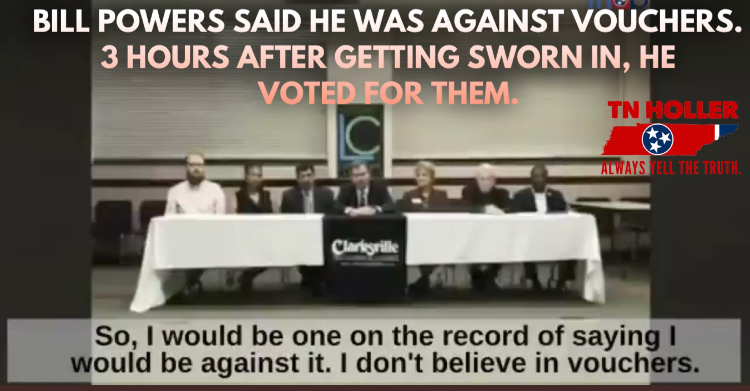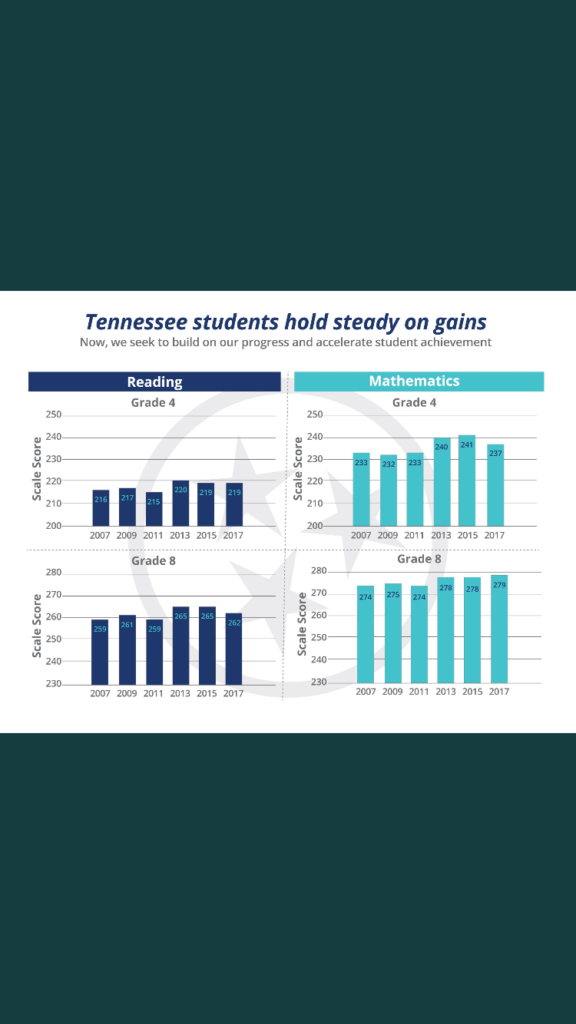The Tennessee Comptroller recently released a report on teacher pay in Tennessee, noting that the salary funding increases approved by the legislature in recent years don’t seem to be making it into teacher paychecks. JC Bowman of Professional Educators of Tennessee offers some thoughts on this analysis.
The Basic Education Program (BEP), how Tennessee funds K-12 public schools, provides over $4.7 billion of state funding for education. The state of Tennessee invested more than $300 million dollars for teacher salaries. As Tennessee teachers knew, and the Comptroller’s Office of Research and Education Accountability (OREA) proved through recent research, most of those dollars did not actually end up in teacher pockets. It does not inspire confidence for current or future educators. This is the challenge the Tennessee General Assembly must meet in order to recruit and retain effective educators in our classrooms.
The legislative intent was to increase teacher salaries across the state. In fact, there was slightly more than 6 percent increase total in average classroom salaries in fiscal years 2016, 2017, and 2018 through the Instructional Salaries and Wages category of the Basic Education Program (BEP). OREA reports that this increase of 6.2 percent (just under $3,000), made Tennessee the third fastest-growing state in the Southeast for teacher salaries during fiscal years 2015 through 2018. However, as evidenced, nobody can be certain those dollars actually reached the pockets of educators.
Many districts used increased state salary funding to add instructional positions and staff, in addition to providing pay raises, as allowed by the state statutes concerning the BEP. It was not clear to researchers how many districts added instructional staff, as opposed to increasing salaries of existing staff. That data would have been extremely useful to policymakers. The increased local funding spent on instructional salaries is also unknown according to researchers. When districts prepare their budgets, BEP funding from the state and local matching dollars are commingled and the dollars “lose their identity” in terms of where the revenue originates.
Districts were most likely to give raises by increasing the district salary schedule, which, in most districts, sets base pay for all teachers at specified education and experience levels. Onetime bonuses and across-the-board raises outside of the salary schedule was also used by districts to increase teacher pay. The state should take more interest in the pay plans submitted by districts and work to ensure that legislative intent to increase teacher salaries occurs, versus merely adding instructional staff.
OREA did not find any indicators of noncompliance but concluded that the available financial data for districts does not permit tracking salary expenditures back to their revenue sources. District budgets do not identify what portion of expenditures are paid for with state funds versus local funds. That certainly needs to be corrected.
Most school districts employ more staff than are covered by BEP funding, the available state and local dollars earmarked for salaries must stretch over more teachers than the staff positions generated by the BEP. Yet, some of these positions were mandated by the state for Response to Instruction and Intervention, which were not funded in the BEP until recently, and then only minimally.
It is also noted in the report that several districts allude to the need to stay competitive with the benefits they offer – like health insurance – to attract and retain employees. The analysis from OREA found “that most districts pay more than the state minimum requirement of 45 percent for licensed instructional employees’ premiums, with over half of districts paying at least 75 percent of the premium cost over the time period. Eight districts covered 100 percent of the cost.”
The Comptroller’s report includes policy considerations and identifies the need by the state to develop a more complete overview and understanding of salary trends by local districts. I would add, it would be helpful for the state to understand its role in this process. We must update our K12 funding formula to reflect changing 21st century needs. As a former businessman, Governor Lee is well positioned to push for a new funding plan and formula that reflects our modern educational mission, priorities, and strategies. We must support our teachers and make sure the dollars allocated to their salaries actually reach them, as policymakers intended.
For more on education politics and policy in Tennessee, follow @TNEdReport
Your support — $2, $4, or $6 makes reporting education news possible.







